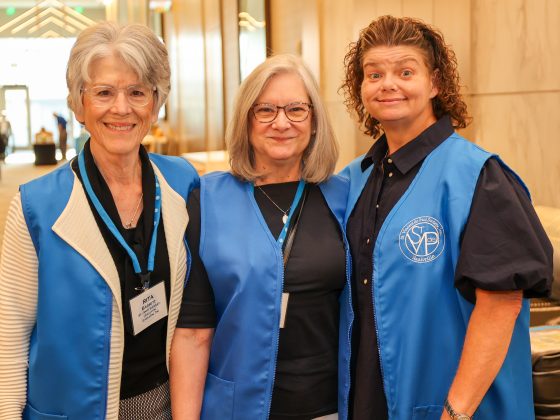“There is no act of charity,” St. Vincent once wrote, “that is not accompanied by justice…” [CCD II:68] We so often see the words “charity” and “justice” used together that we perhaps don’t often think enough about what these words mean, and what they mean for us to do in practice.
We know that charity, the greatest of the theological virtues, is love, and that our acts of charity are in turn the means by which we express and live this virtue: loving God and neighbor. [CCC, 1822] But justice seems like a harder word, doesn’t it?
Our human justice, the legal system, seems focused mainly on punishment, and when we think of God’s justice we may think mainly of the Final Judgment. Yet it should be clear that St. Vincent is not asking us to pass judgment on anybody, much less to punish them. Nor is Frédéric, when he calls upon us to “to make charity accomplish what justice alone cannot do.” [Letter 136, to Lallier, 1836]
Taken in context, Vincent’s letter was to a missioner regarding a large donation that had been sent to him to support the religious, reminding hm to “use none of it for any other purpose under any pretext of charity whatsoever.” [CCD II:68] In other words, taking what belongs to somebody else, even to help the poor, cannot be an act of charity because it is unjust.
In a similar way, Frédéric was calling to “to make equality as operative as is possible among men; to make voluntary community replace imposition and brute force; to make charity accomplish what justice alone cannot do.” [Letter 136, to Lallier, 1836] It’s the Christian duty, in other words, for those who have much to give it away of their own accord. It is not our duty to try to force them. And if what each of us can spare is not enough, then we dig deeper, beyond what we think we can spare.
We sometimes say of convicted criminals that “they got what they deserved!” That is justice, but all persons deserve certain things. After all, God did not place us on the earth, living in community, so that some of us might starve. As John the Baptist preached, for the man who has two coats, one belongs to him, and the other belongs to the man with no coat. Having “two coats” was a sign of wealth 2000 years ago, but each of us can ask ourselves today “what is my second coat? To whom does it belong?”
As Pope Saint Gregory the Great explained, when we give “necessaries of any kind to the indigent, we do not bestow our own, but render them what is theirs; we rather pay a debt of justice…” [P.R., Bk III] Giving our time and ourselves is charity. Treating the poor with dignity is justice. Assisting them with money donated for that purpose is justice. That is why “Conference members should never adopt the attitude that the money is theirs, or that the recipients have to prove that they deserve it.” [Manual, 23]
Contemplate
What is my “second coat”? To whom does it belong?




Thank you for this contemplation. How important it is for all conferences to remember at all times: Our resources belong to the Poor whom we serve, not to us and not to our parish. Whenever our conference is tasked with providing for a parish event, it is tempting to take from what has been donated to us; maybe a few packages of sausage for a parish breakfast, when we have more than we could imagine taking to our neighbors. But those sausages don’t belong to us!